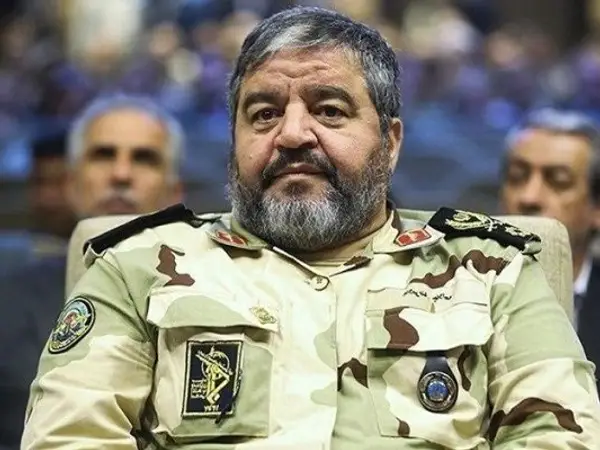Iran’s civil defense chief on Saturday accused Israel and the United States of being behind a cyberattack which disrupted gasoline sales across the country.
Gholamreza Jalali, an Islamic Revolution Guard Corps IRGC general said this is not yet proven and a technical investigation was yet to be completed.
"We are still unable to say forensically, but analytically I believe it was carried out by the Zionist Regime, the Americans and their agents," Jalali, head of Passive Defense Organization (PDO) which is in charge of cyber security, told state TV in an interview.
A nationwide disruption of special payment cards on Tuesday led to havoc at gas stations across Iran. The payment system that was hit is a digital network that controls subsidized, cheap fuel each Iranian receives monthly. Once the system was disrupted, people had to pay double in cash to pump gas.
The cheapest, rationed fuel is about 20 US cents a gallon, while the regular price for gasoline is around 40 cents, the second cheapest in the world after Venezuela.
Iran has said in the past few years that it is on high alert for online assaults, which it has blamed on its arch-foes the United States and Israel. The United States and other Western powers meanwhile have accused Iran of trying to disrupt and break into their networks.
Jalali accused the administration of former president Hassan Rouhani of "not taking cyberwarfare seriously and ignoring it" and claimed that his organization has reached an understanding with the ultraconservative administration of President Ebrahim Raisi "to make up for the setbacks during the previous administration. The PDO will inform the judiciary of the identity of those who caused the attack by neglecting or not carrying out the required precautions.
President Ebrahim Raisi said this week that the cyberattack was designed to create "disorder". But experts have said the payment system was not connected with the Internet.
The disruptions on Tuesday came ahead of the second anniversary of bloody protests in Iran over a sharp increase in fuel prices in November 2019 that turned political with protesters demanding the country's top rulers step down. Security forces killed up to 1,500 people during the unrest using military weapons.
Jalali said that, based on completed investigations, Iran was "certain" that the United States and Israel were behind the cyberattacks on Iran's railroads in July and the Shahid Rajaee Port in May 2020.
Iran's train services were delayed in July by apparent cyberattacks, with hackers posting the phone number of Supreme Leader Ayatollah Ali Khamenei's office as the number to call for information.
About half of Iran's 4,300 gas stations were now reconnected and resuming the sale of heavily subsidized fuel, the state news agency IRNA said on Saturday. Hours after the cyberattack, gas stations reopened gradually but could only be operated manually for the sale of more expensive fuel.
Speculation among Iranian on social media was rampant after the incident, with some saying that the disruption was intentional by the government who wants to reduce subsidies amid a deep economic crisis triggered by US sanctions.
The PDO which is affiliated to the Armed Forces General Command (AFGC) is responsible for policymaking, planning, and operating passive and civil defense activities of government agencies including measures against cyber, biological, radioactive, chemical, and economic threats.
The organization's exact budget is not known but it receives 2% of the budget of all government organizations and agencies to implement its measures against threats in addition to the budget that it receives from the AFGC.
